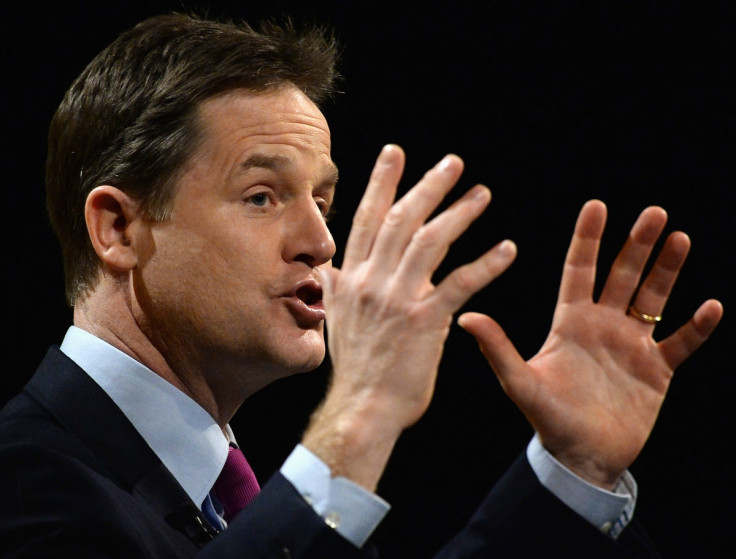Liberal Democrat Conference: Nick Clegg's Biggest Failure Will Haunt Him at the 2015 General Election

It's not difficult to find reasons to dislike Nick Clegg. It's harder to find sand on a beach than list the ways Clegg makes me want to screw up my fist and smash a hole through the computer screen.
But I could have forgiven him everything – the tuition fees, the harsh austerity, the Tory policy victories – were it not for the fact that he squandered the one opportunity he had to leave a meaningful legacy in British politics. A real paradigm shift that would have blown Westminster open wider than Guy Fawkes could have ever wished.
And it would have left him less in the lurch at the 2015 general election, in which his party, the Liberal Democrats, faces a sharp reduction in their House of Commons seats.
I'm talking about the Alternative Vote (AV) referendum in 2011, the "miserable little compromise" by Clegg's own admission, negotiated by the Lib Dem leader as he sought to shoehorn the party into power during the talks that gave birth to the coalition government.
Chances for electoral reform don't come along often. It's like waiting hours for a bus, only to have Clegg ride up on a tandem cycle and offer you a lift, distracting you as the bus hurtles past without stopping. I didn't want to go by tandem, Nick, I wanted to go by bus. And now, because of you, I can't.
Most of the UK wants a proportional electoral system. It means no more wasted votes, no more safe seats as reward for party loyalists, no more of the two-party hegemony that turns so many people off. Every vote counts, so politicians would be incentivised to widen their appeal past the easy majority they too often target at the expense of all other constituents.
It would be a reason for the apathetic masses to re-engage with party politics, which has been on the decline for years as they become increasingly detached from the people they purport to represent.
Yes it would mean more coalitions. But that's no bad thing. It works elsewhere in Europe. It would engender a less combative politics based on negotiation, debate and discussion, where policies aren't just fudged through by bully whips and a Commons majority so big it becomes an elective dictatorship.
I live in Hackney North and Stoke Newington. Unless I vote Labour, which has a vast and insurmountable majority, I don't have representation in the House of Commons. So why even bother to vote?
This is the frustration felt by millions of people up and down the country, whose nominal vote in a general election is little more than a gesture to reflect in the turnout figures, to show that some people – however futile it may be – think it's still important to turn up in a parliamentary election.
Clegg could have changed all that. He could have held firm on a referendum for a proportional system. He compromised on so much else – fair enough – but this was a compromise too far. He should have even gone further in compromising with the Tories if he thought forming a coalition was important enough to the national interest, as long as it meant a proper stab at electoral reform.
Instead we got a referendum on AV, that odd tangle of a system that turns up elected representatives nobody really wants.
He would have won a PR referendum. It had overwhelming support. But he didn't fight hard enough on electoral reform and he let the Tories stitch him up so they could keep their grip on power under the winner-takes-all nightmare of first-past-the-post.
There's irony to this. Even if he had to go further than he wanted to with the Tories, even if he had to break more promises, he could have pointed to the fact that the electoral system was about to change for the better and said: "But look at what I achieved. Meaningful change is coming."
And he would have been right. He would go down in history as a reformer, someone who gave Westminster politics the kick up the arse it needed. What's more, his party would probably get more representation in the Commons because it would reflect their share of the vote, even if this had tumbled after five years of an unpopular coalition with the Conservatives.
Instead, he has to make grand statements in his final Lib Dem conference speech before the general election, trying desperately to define him and his party as different from the Tories. Begging those voters who have deserted to come back, but offering them no real reason to.
It's all just white noise now.
The Lib Dems will, perversely, probably hold the balance of power again in 2015 because another hung parliament is in the offing. But they will be an even smaller force than in 2010 and, thanks to Clegg's referendum failure, even less likely to reignite the flame of electoral reform.
© Copyright IBTimes 2024. All rights reserved.







